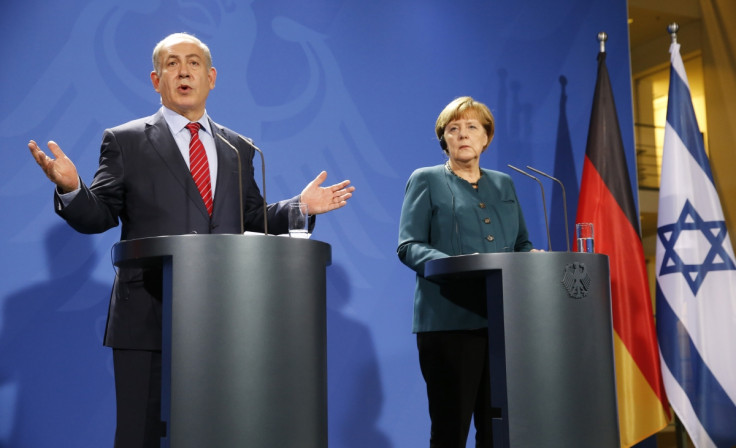Netanyahu comes under fire as Germany takes responsibility for Holocaust

As Israel comes under heightened tension following a spate of attacks between Palestinians and Jews, Prime Minister Benjamin Netanyahu came under fire by his own member of the Cabinet and historians over his claim that a Palestinian leader had persuaded Adolf Hitler to embark on the Holocaust. German Chancellor Angela Merkel even stepped into the fray to correct Netanyahu and insist that responsibility for the Holocaust lay with Germany.
She was not alone. Professor Dina Porat, the chief historian at Israel's memorial to the Holocaust, the Yad Vashem Holocaust memorial in Jerusalem pointed out that Netanyahu's statement was factually incorrect.
Germany just had to remind Benjamin Netanyahu who was responsible for the Holocaust https://t.co/cQ6rjuTccM pic.twitter.com/teheVBOd1S
— Mother Jones (@MotherJones) October 22, 2015Merkel's spokesman Steffen Seibert said: "All Germans know the history of the murderous race mania of the Nazis that led to the break with civilisation that was the Holocaust. This is taught in German schools for good reason. It must never be forgotten.
"And I see no reason to change our view of history in any way. We know that responsibility for this crime against humanity is Germany and very much our own," Seibert added.
Netanyahu refuses to back down
But Netanyahu, the son of an eminent historian has refused to back down. He insists that the Grand Mufti of Jerusalem Haj Amin al-Husseini, a Palestinian Arab nationalist and Muslim leader in Mandatory Palestine, had persuaded Hitler to exterminate the Jews. "It's absurd. I had no intention of absolving Hitler of his satanic responsibility for the annihilation of European Jewry. Hilter is the one who made the decision," he said.
"At the same time, it is absurd to ignore the role of the mufti ... played in encouraging and motivating Hitler" and other Nazi leaders to take such action, Netanyahu added. Husseini was sought for war crimes but was never brought forward at the Nuremberg trials. He later died in Beirut in 1974.
Netanyahu, in responding to criticism said on Wednesday (21 October) that there was "much evidence" to back his claims against Husseini, including testimony by a deputy of Adolf Eichmann, an architect of the Holocaust, at the Nuremberg war crimes trials after the second World War. Although Netanyahu did not name the aide, Reuters said he could be referring to Dieter Wisliceny who was quoted in news reports as far back as the late 1940s as having told the war crimes court that Husseini repeatedly suggested the extermination of European Jews to Nazi leaders.
This is not the first time Netanyahu has made the allegation. Haaretz reports that he made the same claim in 2012, painting Husseini as "one of the leading architects" of the final solution. The Israeli newspaper said that the mufti's role was recently mentioned in a book by Barry Rubin and Wolfgang G Schwanitz called Nazis, Islamists, and the Making of the Modern Middle East.
Even his close ally says Netanyahu was wrong
Even Netanyahu's Defence Minister and close ally Moshe Yaalon said the prime minister had got it wrong. "It certainly wasn't [Husseini] who invented the Final Solution. That was the brainchild of Hitler himself," he told israel's Army Radio.
While there is no dispute that the mufti did indeed meet Hitler, historians say it was well after the Final Solution began. Porat, a professor at the Tel Aviv University and chief historian at the memorial museum said: "The idea to rid the world of the Jews was a central theme in Hitler's ideology a long, long time before he met the mufti."
Historians noted that the meeting between the mufti and Hitler took place on 28 November 1942. More than two years earlier in January 1939, Hitler had addressed the Reichstag, Nazi Germany's parliament where he spoke clearly about his intention to exterminate the Jewish race.
US State Department says evidence does not support Netanyahu
The US State Department also jumped into the controversy, saying that scholarly evidence did not not support Netanyahu's comments. "We've seen the press reports of his comments, and if you look at them, they would connote that the scholarly evidence does not support that position," the department spokesman John Kirby told a daily briefing.
© Copyright IBTimes 2024. All rights reserved.






